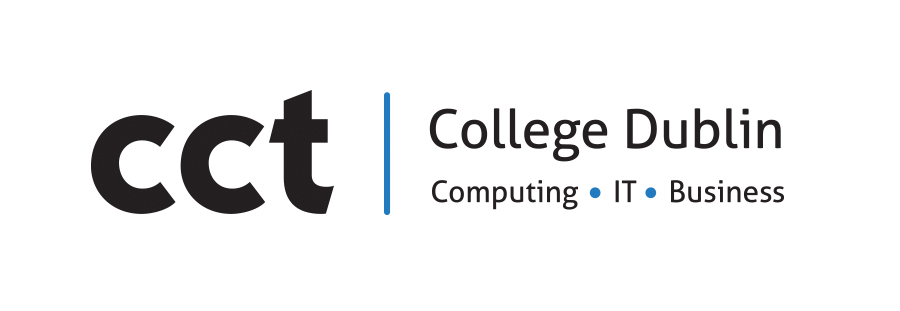Higher Diploma in AI Applications Course Overview
The Higher Diploma in Science in Artificial Intelligence Applications is a postgraduate course which aims to provide an opportunity for learners with a related degree outside the computing arena as well as those currently involved within the IT sphere to refocus and reskill for careers that require AI knowledge and skills. This programme is specifically designed for individuals with an evidenced numerate, technical and analytical ability who aspire to work, or are working, in roles that involve artificial intelligence. They will have the opportunity to continue to develop knowledge, skill and competence to remain competitive and employable in an ever-advancing sector. The demand for high level ICT skills, including AI, is forecast to grow driven by strong market demand and the spread of digitalisation across all sectors of the economy.
This Higher Diploma in AI course is a rigorous and highly skills focused conversion course, and as such applicants will need to be highly motivated and fully committed to the programme in order to be successful. The course deals with current business trends in the use of AI and the tools and technologies used in implementing Artificial Intelligence across a wide selection of business types undergoing digital transformation. The course also deals with the different types of accepted AI and its underlying implementation. The design and development of modules within this programme was informed by significant industry consultation, particularly from Microsoft and its partner network.
Read more about this Graduate Higher Diploma in AI below:
Participants on the course will undertake learning in the subjects of programming, mathematical, logical and strategic thinking as well as machine learning, data gathering, analysis and visualisation and the subsequent business application of these skills. Industry-initiated real-world problems will be provided by our industry contacts and used as the context for planning and designing assessment solutions, as well as being an aid for problem-solving sessions.
In addition to the mathematical and associated technical skills, which will be fostered during the participants studies, transferable skills that will be developed throughout the programme via the varied teaching and assessment methods include: critical analysis, advanced evaluation, self-analysis and personal reflection, problem solving, communication skills, team management and group-work and professionalism. The programme is underpinned by a Strategic Thinking Capstone module which spans all semesters and is assessed by a Problem Based Learning (PBL) project. The module explores current strategic thinking issues companies face today, such as data protection and privacy and the challenges and opportunities of emerging technology.
-
- Strategic Thinking
This capstone module floats across all semesters of the full-time delivery and at least two of three semesters for the part-time delivery. Strategic Thinking concepts are introduced purposefully as the module and programme develops. As this module is the capstone, and spans all semesters, the syllabus content usefully synchronises with the principal Problem Based Learning project and associated problem milestones, furthering the relevance of content to practice. The syllabus explores problem identification and the process of solution mapping, this then builds to project planning and team development specifically within this field.
-
- Artificial Intelligence Concepts to Implementation
This module will walk students through the broad fundamental concepts and techniques of AI and the different AI approaches. The module covers the definition of AI, history of AI, different levels of AI, and problem-solving approaches. Learners will assess and apply AI techniques. Learners will have the ability to identify the most suitable AI for a given application or task.
-
- Programming for Artificial Intelligence
This module uses Python as the base language, which allows the student the ability to quickly and easily come up to speed with the basic concepts of programming due to python’s low entry barrier. Due to the large industrial and academic support for the language, Python enables the implementation of complex AI systems and visualizations at a very early stage in the learning cycle, allowing the student to get practical experience of the AI’s discussed in the case studies.
-
- Machine Learning
This module represents one of the corner stones of A.I. The assimilation of knowledge from this module is greatly enhanced by modules running in parallel. Learners will utilise the knowledge to inform the selection or design of the training algorithms to be used in the implementation of problem / domain specific machine learning tasks. This Module links directly with the Earlier Modules by implementing the domain-based knowledge previously covered following the case studies discussed. This module has direct application in both industry and academic research.
-
- Data Visualisation Techniques
This module Data visualisation allows the efficient and effective communication of vast quantities of data, offering rapid insights that would otherwise be difficult or impossible with numerical presentation. This module will provide the learner with the skills needed to present a variety of different types and volumes of data in a manner that provides the maximum insight and understanding to the
viewer.
-
- Storage Solutions for Big Data
The aim of this module is to provide the learner with the necessary knowledge and skill to be able to design and implement storage, processing and machine learning solutions that are capable of scaling to vast quantities of data. The module builds on the skills and knowledge the learner acquired in previous modules, and enables them to propose and formulate solutions to a variety of real-world big data problems. The knowledge gained from this module allows the learner to gain important insight into the practical application of skills learned from this and other modules.
As this is a blended learning programme students will be required to engage in a combination of on campus and online activities. All students will be introduced to the CCT online learning environment as part of the induction to the programme and will have access to further support as required.
Online activities can include live or pre-recorded lectures, independent learning and assessment activities such as research tasks, discussion forums, simulations, quizzes and e-portfolio work along with online group activities such as live classes, group project work, virtual labs and tutorials. Completing the online elements of the programme each week is essential to successfully complete the programme.
On campus activities can include small group tutorials, labs, project supervision, problem solving case studies, library research and seminars.
Learners submitting an application to the proposed programme should provide supporting documentation for application consideration, in line with any one of the below Access arrangements or minimum entry requirements:
Evidence of ability in the application of mathematical concepts such as statistics, algebra, or spreadsheet analysis and formulas, database knowledge, for example, to a level 8 standard is required to evidence the numerate, technical and analytical ability required to ensure capacity for the extent of mathematical and technical content on the programme. This pre-requisite knowledge, skill and competence can be evidenced through a level 8 degree, or through a combination of qualifications with experience. Specifically:
a. Applicants will ideally possess a minimum of an honours degree in ICT, or a cognate discipline. For the purpose of the application process, cognate disciplines deemed to satisfy the requirement for numerate, technical and analytical content include those in the areas of:
- Mathematics
- Life sciences
- Engineering
- Technology
- Information science
- Economics
- Architecture
- Accounting
Applicants with non-cognate degrees will also be considered but must be able to demonstrate mathematical, technical and analytical ability up to a level 8 standard through qualifications or appropriate experiential learning.
or
b. Applications on the basis of experiential learning or informal / non-formal learning must evidence an applicant’s potential to succeed through demonstration of ability to pursue the programme at the applicable NFQ level and benefit from the programme of study in question. Specifically, RPL applications must evidence numerate, technical and analytical ability to a level 8 standard. In addition to numerate, technical and analytical capacity, all applicants will need to evidence learning to a level 8 standard including the ability to produce written summaries, discussions and projects on academic and applied matters.
RPL portfolio evidence may be provided through:
- Prior study and qualifications, including CPD, short courses and professional awards as well as NFQ awards
- Work experience and achievements
- Other experiential learning obtained through volunteering or non-employment experience
- Successful completion of an entry assessment set by the College
- A combination of the above
This programme is designed for graduates of level 8 degrees of a more numerate, technical and analytical nature or those individuals who can evidence equivalent through professional experience and/or educational qualifications. This programme is not suitable for individuals with only basic numeracy and or computer literacy.
To fully engage in this programme applicants will be required to have access to the internet, a laptop or desktop PC with webcam, microphone and speakers or headset.
This is the minimum specification for laptop:
- Windows 10/11 OS with a basic RAM Memory of 16GB DDR4 RAM, processor Intel i5/i7(9th Gen and above or equivalent),
- Dedicated graphics card
- SSD / HDD : 500GB
- M1/M2 Mac Not Suitable for AI or Data Analytics Courses
While there is no compulsory access interview some applicants may be required to attend an interview. CCT reserves the right to request an applicant to attend a semi-structured interview in order to more fully establish the applicant’s suitability for the programme, their motivation and potential to succeed.
There is no specified minimum experiential requirement for standard applicants. RPL applications are considered on a case-by-case basis under the CCT RPL policy.
Applicants whose first language is not English, must present English Language proficiency level evidence. English language competency required for entry must be equal to or greater than B2+ in the CERFL. English language credentials endorsed by other systems (viz. IELTS, TOEFL, Cambridge etc.) will be assessed to ensure they meet this minimum standard.
All applications for admission onto this programme should include:
- Updated CV
- ID Verification (passport picture page copy)
- Attested original copies of degree qualification parchment
- Attested original copies of final degree transcript of results
- RPEL documentation as required by CCT
- Evidence of English Language proficiency scores if the applicant’s first language is not English (IELTS, TOEFL etc.)
Application for the full-time (day) course can be made by emailing admissions@cct.ie
We are hosting a number of events in the lead up to the next academic year to give prospective students the opportunity to find out more about their course and the College. At the moment these events are virtual and you can pre-register here.
You can also make an appointment with an Admissions Advisor in person or via zoom by email.
All QQI accredited programmes of education and training of 3 months or longer duration are covered by arrangements under section 65 (4) of the Qualifications and Quality Assurance (Education and Training) Act 2012 whereby, in the event of the provider ceasing to provide the programme for any reason, enrolled learners may transfer to a similar programme at another provider, or, in the event that this is not practicable, the fees most recently paid will be refunded.


